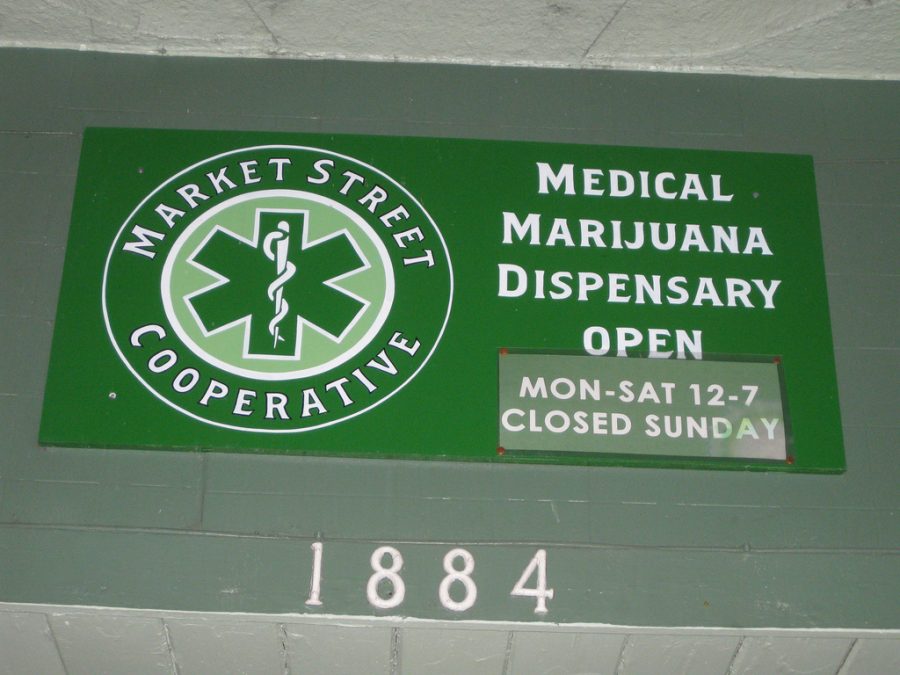Cannabis, pot, dope, grass, weed and Mary Jane — marijuana goes by many names.
Its use has been a contentious debate in the United States ever since its illegalization in 1937, and its use has been an issue on college campuses nationwide for decades. But at new institutions springing up in states that have since legalized the use of medical marijuana, such as Med Grow Cannabis College in Michigan, marijuana is everything.
Nick Tennant, president and founder of Med Grow, said the college has offered six-week, one-week, and online courses for Michigan and out-of state residents since 2008. These include a variety of beginner and advanced courses for tuition ranging from $399 for online courses to $595 for the condensed one-week program.
“Every instructor that is employed by our institutions are experts in their field,” Tennant said. “We also offer a myriad of outside resources such as access to attorneys, positive patient referral networks, consultation services, document filing services, and certification services.”
According to Wisconsin Senate Journals and Wisconsin State Council on Alcohol and other drug abuse documents, the state could have given approval for medical use and licensing “compassion centers” similar to those Med Grow graduates operate. The “Senate Assembly Bill 554,” a.k.a. the “Jackie Rickert Medical Marijuana Act,” which was introduced in November 2009 and killed in April 2010, allowed these centers.
Med Grow provides certificates to “caregivers,” which state laws identify as “persons legally allowed to grow and administer the drug.” The certificates are currently unregulated, but offer credibility when looking for patients, said Tennant.
The amount of patients for each caregiver and minimum age of caregivers varies from state to state. The ages are 18 and 21 in Michigan, with respective qualifications.
Marquette students seem split on whether national or more widespread medical legalization of the drug would be both beneficial and harmful.
“For medicinal purposes, I think marijuana has valid use, and we shouldn’t deprive physicians of an effective treatment,” said Dan Balk, a freshman in the College of Arts & Sciences.
Madeline Wegner, a freshman in the College of Arts & Sciences and certified EMT, said she is against the legalization of marijuana for any purposes. She doesn’t see any significant medical benefits, and believes prescriptions would be abused.
According to the National Organization for the Reform of Marijuana Laws’ website, patients are protected when growing and consuming cannabis if diagnosed with conditions such as arthritis, cancer, chronic pain, HIV or AIDS, epilepsy, glaucoma, nausea, chronic nervous system disorders or post-traumatic stress disorder.
“We’ve gone so long without using it in the medical market, it seems unnecessary to start now,” Wegner said. “There’s enough drugs currently legal in the market that are used as treatment for the same conditions, and how dopamine (a natural chemical affected by antipsychotics like cannabis) alters the brain can be fatal, so if it were legalized, schools (like Med Grow) would have to be very regulated.”
Tennant stressed that, in addition to medical benefits, their college offered students a business opportunity.
“I think that if you’re considering a career path getting out of college or while in college, you may want to consider medical marijuana,” Tennant said. “It’s the most viable, recession-proof industry today. There’s an opportunity to make a nice living while being compassionate and helping people that are in need.”


Dan • Oct 28, 2010 at 9:15 am
This article is poorly researched. Polls routinely show that American’s favor medical marijuana use by a roughly 80-20 split; hardly “divisive.” http://abcnews.go.com/images/PollingUnit/1100a3MedicalMarijuana.pdf
Also, Ms. Wegner may want to take some more medical classes. Marijuana has never – NEVER – caused a fatal overdose. It’s non-toxic. And it’s also less addictive that opiate-based narcotics.
http://www.ask.com/questions-about/Deaths-Caused-by-Marijuana